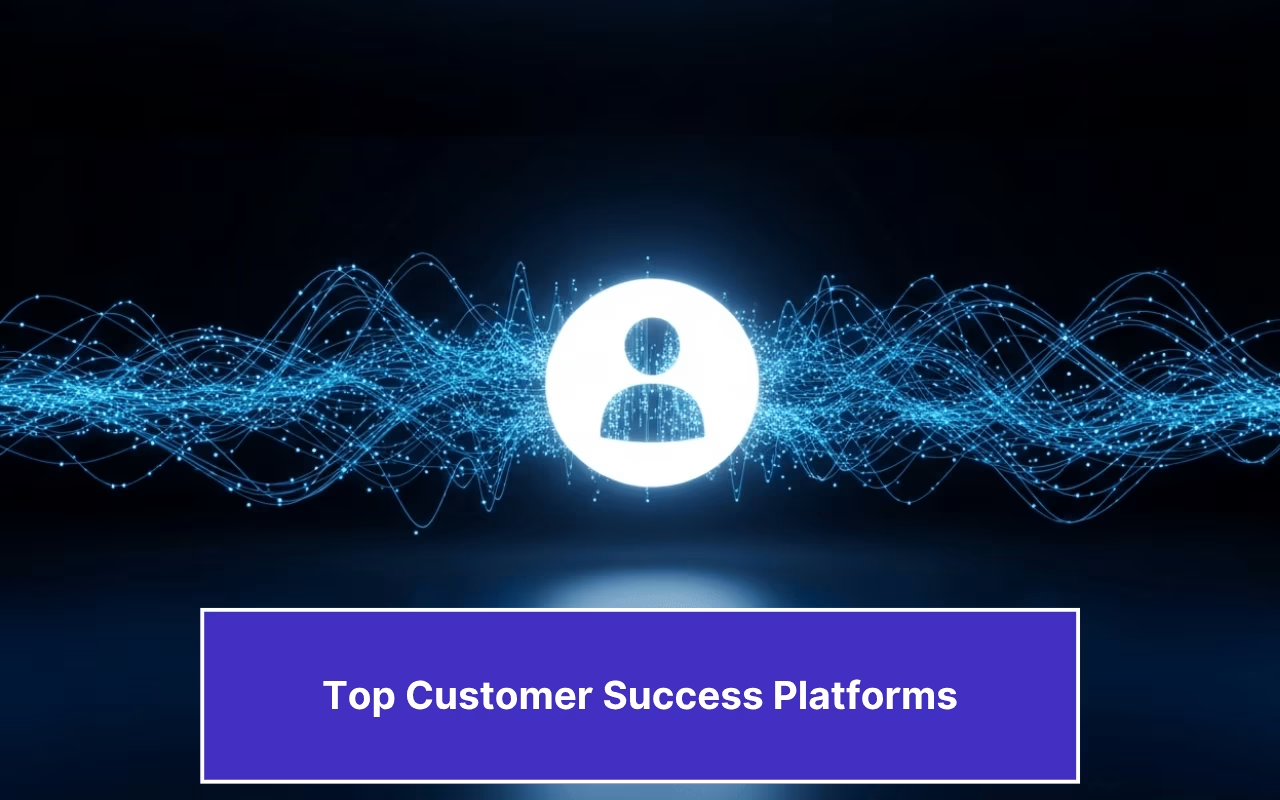Updated on January 21, 2025

From launching a brilliant idea to seeing it through every step of the way, getting your business off the ground involves courage, patience, and commitment. 70% of startups don’t even make it to their 10th birthday. There are many reasons for this, but the right customer communication remains one of the top factors.
Since it drives your marketing, sales, and customer service – customer communication is an essential aspect of your startup’s growth. Although the risks are numerous, they are, by no means, impossible to overcome. But to get through the tough times, you’ll need the right approach to adversity. Understanding what works and what doesn’t will save you time and money.
What is customer communication?
Customer communication involves enterprises interacting with customers at every stage of the buyer journey, from marketing efforts to post-sales service. Such communication will continue throughout the customer’s lifetime.
What is customer communication management (CCM)?
Customer communication management (CCM) involves the strategy, tools, and channels required that an enterprise uses to initiate and maintain customer communication. When you strategize customer communication this way, you can empower teams throughout the company to collect and share knowledge.
Another aspect of CCM is that it enables businesses to comprehend how their communication strategies are perceived so they can adjust accordingly to yield better customer engagement. This process includes how a customer receives and responds to brand and marketing communications and transactional and essential product-related communications. Data from these processes can be used to customize and personalize upcoming communications to suit customer needs.
Why do You Need Good Customer Communication?
1. Boosts brand awareness.
Brand awareness is extremely important. It can boost purchasing decisions and help customers differentiate between you and your competition. But posting on social media and publishing blog posts won’t always be enough to get you noticed.
You will have to build your brand by starting conversations with your customers. This will get your message across and create brand awareness. Communicate with them and tell them about your latest products, company news, and events. Doing this will keep you and your brand fresh in their minds.
They will be more likely to tell their friends and family about your brand, creating a ripple effect that might expand your reach and establish your brand in your niche.
2. Cultivates customer engagement.
Engaging with your customers is one of the most important aspects of marketing. You need to guide them through the sales funnel and can only do this through constant communication. Don’t let them forget about you. Include them in your social posts. The best way to do this is to use calls to action.
At the end of your Facebook or Instagram post, make sure to include a question or some kind of instruction. Invite viewers to subscribe or click on your website link. Encourage them to share their thoughts in the comments section.
Keeping them constantly engaged can increase your chances of turning them into paying customers.
3. Helps build relationships.
Knowing your target market is necessary to build a closer relationship with them. You can achieve this through great customer communication.
Staying in touch with them even after they have made a purchase will also let them know that you care. The same is true regarding thoughtful greetings during special occasions like birthdays and holidays.
Communicating with your customers will go a long way. Not only will it keep your customers happy and make them feel valued, but it will also give your business a human touch. This is very important for any type of relationship.
4. Fosters trust and customer loyalty.
Keeping a constant line of communication with your customers will help you pinpoint their problems and offer solutions. Doing this will show your reliability and trustworthiness.
Customers who trust your brand and value your reputation will spread the good word, creating an even better reputation. Loyal ambassadors promote your business even when you don’t ask or pay them. There is no better marketing than customer word-of-mouth.
5. Cushions market and price changes.
Along with trust and customer loyalty, constant communication also helps you during times of crisis. When customers have faith in you, they will not easily believe rumors and negative reviews.
Your honesty and sheer effort to connect and keep in touch can harbor solidarity. This means that they won’t close their ears and complain when the market changes and you need to keep up to remain relevant and financially sound.
Instead, they will be willing to listen to your plans and visions and support you along the way. The latest innovations and even price changes will not turn them away either.
6. Helps improve products or services.
One thing to remember when it comes to any business: you can’t always please everybody. Sometimes your customers will complain. Instead of taking every complaint to heart, you can listen to it, accept it and turn it into something positive. Use their feedback as a learning opportunity.
Again, communication is the key to success. Take the time and make an effort to discover what customers want and need through a short survey. You can also encourage them to share their feedback. They will feel valued because you have asked for their input and considered their comments.
By humbly accepting criticism and feedback, you can improve your products or services and provide the best customer experience possible for your customers.
7. Safeguards company reputation.
Having a good company reputation is vital. This is something that every consumer looks out for. In the age of modern technology, it is easier than ever for your target customers to research products they are interested in. Part of this research is ensuring that the brand they are eyeing is reliable.
Is your product worth the price? Will customers be willing to spend their hard-earned money on it? But in reality, the most important factor lies not in the product but in the company itself.
Your product might be as good as your competition, but if you are not trying to truly connect with your customers, they might not buy into your vision.
Customer communication bridges the gap between you and your customers. Let them know more about you, what you do, and where you come from. Allow them to see the people, the heart and soul behind the brand.
And, whatever it takes, ensure you open your lines for feedback and suggestions. Your customers will perceive you as a company that offers quality products and services and is also human enough to admit mistakes and learn from them.
Going the extra mile will help you solidify your reputation as a reliable brand in your chosen market.
8. Improves customer retention
Satisfying one customer who has already purchased from you is far easier than throwing dollars at acquiring two new customers. Customers today want businesses to listen to them empathetically and respond to their queries in the least amount of time. When you actively go out of your way to communicate with your customers and resolve their queries, you win their trust, increasing their satisfaction.
Customer retention is directly related to customer satisfaction, and the more you can convince your customers that, as a business, you are listening to them, the greater the chances that they will remain loyal to you. Building the right customer communication strategy will help keep your customers returning to your business and effectively deal with those who have had an unpleasant experiences with you. Remember that as a business, you can’t please every customer who purchases from you. This being said, if you listen to all your customers’ feedback and maintain a good communication channel, there are high chances that most customers will be in for a long-term relationship.
9. Helps improve conversions
Effective customer communication today is the key to conversion, and companies who talk to customers only as a sales opportunity are bound to flounder. Making customers feel at home right from the time they get in touch with your brand, using effective communication, is the key to improving sales.
There are several ways you can use customer communication to boost sales. You can give live demos of your product or talk to customers and ensure they know everything about all your offerings, helping them choose the best product. If you effectively communicate with your customer about what you are offering, they will reciprocate by telling you their pain points and the problem they are trying to solve with your product. This will nurture them further down your sales pipeline and convince them that you are the right solution provider.
Customer communication skills are needed for increased customer retention and loyalty
The customer will likely switch to another brand because of unsupportive customer care professionals. It has been found that around 70% of customers stick to a brand only based on how they are treated.
Here is a list of some customer service ethics and practices organizations can follow to improve their communication skills.
1. Listen carefully
As a customer support team, you must always listen carefully and actively to what the customer is saying. Never interrupt the customer in between, and try to understand their perception. Listening carefully will always help you know what the customers want and where they face problems.
2. Offer Personalized communication
Make sure you have personalized conversations with your customers. Always try to be as friendly and supportive as possible. It is an excellent way of making your customer feel important and better if they’re having a hard day.
3. Always use positive words
Your words have unimaginable powers. Always be sure that you use your words wisely and accurately. Try to use positive words like definitely certainly, indeed, sounds good, or sounds excellent. This gives an optimistic touch to the conversation.
4. Have empathy
To understand the customer’s problem, you must learn to be in their position. This will help you understand the reason behind their frustration and anger. As a result, you can come up with a suitable response that can calm them down and help them with their problem.
5. Use simple language
Always use vocabulary that is comprehensible and not that hard to understand. Try to use simple and easy sentences that customers can understand without any problem.
6. Have transparency in your internal organization
Having effective conversations with your customers is almost impossible without transparency in your internal organization. As a team, you must have good communication and a mutual strategy to work together and rely on each other. You must build a strong communication strategy so that the whole team is updated with all the new insights of the business. You can also take the help of technology to make your internal communication more effective. Different chatting platforms can be integrated to improve internal communication.
7. Take customer Feedback
Always try to take customer feedback to make essential and effective changes in the organization. Customer feedback is always beneficial in figuring out the loopholes in the business and understanding how you can improve your product or service. Also, the customer feels essential if their feedback is considered and they see visible organizational changes.
Tips to improve customer communication
You can utilize these steps to ensure that you’re getting customer communication right:
1. Analyze your customer communication metrics regularly
First, you must figure out your high-priority customer communication metrics. Sound critical customer communication metrics are-
First Response Time (FRT): First Response Time refers to the time it takes your team to reply to the customer query.
Average Resolution Time (ART): This is the average amount of time it takes your team to solve a problem.
Customer Satisfaction (CSAT): This measures how well your team can meet the customers’ expectations.
All these metrics can be used to assess your team’s performance and improve customer communication.
2. Have an omnichannel communication strategy
It is always great to have multiple communication channels to contact your customers. Allowing your customers to communicate with you with their channel choice helps enhance customer satisfaction. It is a proven fact that marketers can earn more as and when they strengthen their communication channels.
3. Offer self-service options
Sometimes, you can help your customers by letting them help themselves. You can use customer feedback and implement all the changes to offer self-service options to your customers. It has been found that around 70% of customers look for self-service options in an organization. Some famous self-service options include FAQs, tutorials, and how-to guide options.
Wrapping Up
As you grow and develop your startup, you will face your fair share of challenges. But, with the right customer communication, success will be right at your fingertips. Brand awareness, customer engagement, relationship-building, customer trust, and loyalty can contribute to your business’s success.
You can only ensure its realization through constant customer communication. Effective communication can make the difference between closing a deal and losing a golden opportunity.
This is a guest post by Andriana Moskovska.
At Kommunicate, we envision a world-beating customer support solution to empower the new era of customer support. We would love to have you on board to have a first-hand experience of Kommunicate. You can signup here and start delighting your customers right away.





